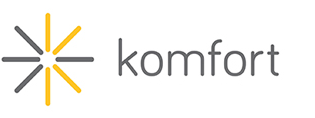Business Imperative
The company’s experience with Exel Computer Systems’ EFACS E/8 ERP system dates back to 2012, when the business first implemented EFACS E/8. A reimplementation in April 2017—prompted by a corporate restructuring that saw Komfort move forward as a standalone business, rather than part of a larger group— allowed them to take advantage of extensive process-mapping, with the resulting EFACS E/8 system embracing Komfort’s company headquarters , manufacturing site, two combined sales offices and warehouses in Leeds and Crawley, Sussex.
But, by late 2020 the 2012 instance of the system—by then eight years old—had become somewhat dated, and business systems team leader Laura Anderson proposed to Komfort’s board that the company move to a newer iteration EFACS E/8 version 8.6.3. This was agreed in outline terms in February 2021, and work began to prepare the ground for the new system.

